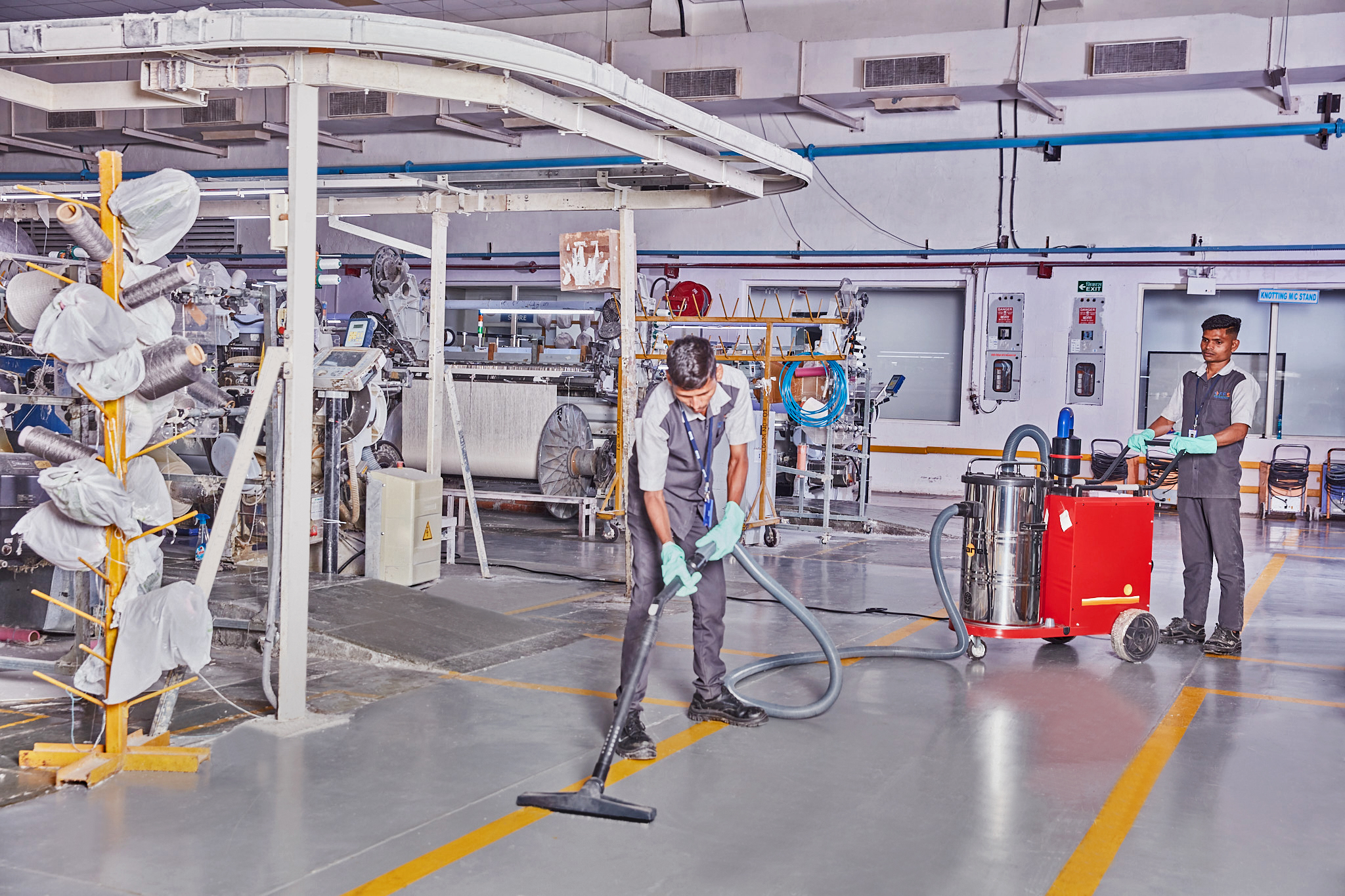Understanding Compliance in Facility Management
What is Compliance?
Compliance in facility services management refers to adhering to legal, safety, environmental, and operational regulations that govern how facilities are managed. This includes fire safety codes, labor laws, environmental guidelines, and building standards.Why is it Important?
For businesses in India, compliance ensures:- Safety of employees and visitors
- Protection of assets and infrastructure
- Avoidance of legal penalties and fines
- A strong reputation in the market
The Cost of Noncompliance
Immediate Risks
Noncompliance in facilities and management can lead to serious issues such as workplace accidents, environmental hazards, and reputational damage. For instance, ignoring fire safety regulations may save costs initially, but one accident can destroy both property and credibility.Long-term Impacts
- Heavy fines and penalties
- Higher insurance premiums
- Decreased employee productivity due to unsafe environments
- Loss of investor and customer trust
Compliance as a Value Creator
Enhancing Operational Efficiency
Compliance isn’t just about avoiding risks—it also drives efficiency. Well-maintained buildings and equipment ensure fewer breakdowns, predictable operating costs, and better asset utilization.Supporting ESG Goals
Today’s organizations prioritize sustainability. Compliance with environmental standards helps align facilities with ESG initiatives, making companies more attractive to investors and clients.Legal and Financial Protection
Facility management companies that prioritize compliance provide assurance that their clients are protected from unforeseen legal and operational disruptions.Compliance vs Noncompliance in Facility Management Solutions
| Aspect | Compliance in Facility Management Solutions | Noncompliance in Facility Management Solutions |
| Safety | Ensures safe workplaces, fewer accidents | Higher risk of accidents and liabilities |
| Cost | Long-term savings via efficiency | Short-term savings, but heavy long-term costs |
| Reputation | Builds brand trust and credibility | Damages image and credibility |
| Sustainability | Aligns with ESG, promotes eco-friendly ops | Creates waste and environmental harm |
| Legal Risks | Protects against fines and penalties | Exposes to lawsuits and financial losses |
The Role of Integrated Facility Management in Compliance
Integrated Facility Management (IFM) brings together multiple services—such as housekeeping, security, technical maintenance, and energy management—under a single umbrella. This approach makes compliance easier to implement and monitor.Benefits of IFM in Compliance:
- Centralized compliance tracking
- Streamlined vendor management
- Real-time monitoring of safety and operational standards
- Transparent reporting for audits
Facility Management in India: The Compliance Challenge
The Indian facility management sector is growing rapidly, but compliance remains a challenge due to diverse regulations across states, industries, and building types. Companies offering facility management India solutions must adapt to:- Fire safety and disaster management laws
- Environmental protection regulations
- Labor and workplace safety laws
- Building codes and urban development rules
Why Compliance is Non-Negotiable for Facility Services Management
Protecting Human Capital
Employees thrive in safe and compliant workplaces. Compliance boosts morale, productivity, and retention.Business Continuity
Compliance ensures uninterrupted operations by minimizing risks and avoiding legal shutdowns.Competitive Advantage
Clients prefer facility management companies that can demonstrate robust compliance frameworks, making it a differentiator in the marketplace. Strategies for Compliance in Facility Management Solutions- Regular Audits Conducting internal and external audits ensures all operations meet regulatory standards.
- Training and Awareness Educating staff about compliance builds a culture of responsibility and accountability.
- Technology Integration Tools like IoT sensors, AI-based monitoring, and compliance management software help track real-time adherence.
- Vendor Management Ensuring third-party service providers also follow compliance standards is crucial for overall facility safety.
- Documentation and Reporting Proper records help in audits, inspections, and legal proceedings, ensuring transparency.
Real-World Example: Compliance in Action
A large IT park in India partnered with one of the leading facilities management companies to improve compliance. Through integrated facility management, the company centralized safety protocols, trained staff, and implemented IoT monitoring for fire and electrical systems. The result was reduced incidents, improved energy efficiency, and a safer environment for over 20,000 employees. This case demonstrates how compliance adds measurable value to businesses.Future of Facility Management in India: Compliance-Driven
As businesses evolve, compliance will become the foundation of facility management India. With stricter environmental and workplace laws, organizations can no longer afford to overlook compliance.Trends to Watch:
- Greater use of automation and AI in compliance monitoring
- Stronger alignment with ESG reporting
- Expansion of compliance frameworks across industries
- Enhanced government scrutiny and stricter penalties for violations
Conclusion
The debate between compliance and noncompliance in facility management solutions is not really a debate at all. While noncompliance may provide short-term cost savings, the risks far outweigh the benefits. Compliance, on the other hand, ensures safety, sustainability, operational efficiency, and long-term profitability. For businesses in India, compliance-driven facility management services and integrated facility management are essential for growth and resilience. Choosing facility management companies that prioritize compliance will not only protect organizations from risks but also position them as leaders in safety, sustainability, and innovation. In the ever-evolving world of facility services management, compliance is not just the best choice—it is the only choice for sustainable success.Also Read: How to Reduce Facility Costs Without Compromising Quality
FAQs
1. What is Facilities and Management, and why is it important?
Facilities and Management refers to the strategic coordination of the physical workplace with the people and work of an organization. It ensures buildings are functional, safe, efficient, and conducive to productivity. FM covers everything from maintenance and operations to safety, space planning, and sustainability. It plays a critical role in reducing costs, supporting employee well-being, and aligning the physical environment with organizational goals.
2. What are the core responsibilities of a Facilities Management team?
Key responsibilities include:
- Maintenance and Operations: Routine upkeep, cleaning, repairs, and inspections.
- Space Planning: Optimizing physical space for productivity.
- Safety and Compliance: Meeting health, safety, and environmental regulations.
- Security: Protecting occupants and assets.
- Sustainability: Implementing green, energy-saving practices.
- Cost Control: Budgeting and resource allocation.
- Emergency Management: Ensuring business continuity during crises.
- Technology Integration: Using tools like CMMS and building automation systems.
3. Who is involved in delivering Facilities Management services?
Facilities Management is delivered by a diverse team, including:
- Facilities Managers: Lead strategy, budgeting, and operations.
- Maintenance Staff: Handle repairs and equipment upkeep.
- Cleaning Staff: Maintain cleanliness and hygiene.
- Security Personnel: Ensure the safety of people and property.
- Support Staff: Includes landscaping, groundskeeping, and admin teams.
Each role is essential for the effective functioning of a facility.
4. How does Facilities and Management contribute to cost savings?
Efficient facilities and management can significantly reduce operational costs through:
- Preventive maintenance that avoids expensive repairs.
- Optimized energy usage via smart systems and automation.
- Better space utilization, reducing real estate overhead.
- Streamlined operations and vendor management.
- Lifecycle management of assets, avoiding early replacements.
These practices lead to long-term financial savings while improving performance.
5. What are the benefits of implementing Facilities Management in a business?
Benefits include:
- Enhanced productivity from a well-maintained and safe environment.
- Lower operating costs through efficient resource use.
- Improved safety and compliance, minimizing legal risks.
- Increased property value with well-managed assets.
- Better employee and customer experience through clean, functional spaces.
- Support for sustainability via eco-conscious operations.
In short, Facilities Management drives operational success and stakeholder satisfaction.
About SILA -
A Real Estate platform driven by an entrepreneurial spirit.
Our businesses include Real Estate Services which offer Facility Management Solutions, Material Handling Solutions and Real Estate Advisory. Our other business is Real Estate Development. We have a diverse client base in various sectors which include large Corporates, Real Estate Funds, Landowners and Developers.
Over the last decade, SILA has scaled efficiently, managing over 350 million square feet of assets, with over 30,000 employees pan India. The platform is backed by Norwest Venture Partners and Samara Capital Group in our Real Estate Services and Development arms, respectively.
SILA is one of the best property management companies in Bangalore, Mumbai, Delhi, Chennai, Hyderabad, Pune & more.
SILA is among the top facility management companies in India, offering comprehensive Facility management services. As a leading facility services management company, SILA provides tailored FM solutions, including housekeeping services in Bangalore. Leveraging our expertise, we ensure seamless property management for clients nationwide. Whether you require housekeeping agency support or specialized facility management solutions, SILA delivers excellence in every aspect of your Housekeeping services in India, property’s upkeep and maintenance. With a proven track record in Facility Management India, SILA continues to set benchmarks in efficient and sustainable property management.
About Author -

Aniket Sheth
The insightful content in this blog is curated by Aniket Sheth, our esteemed Senior Vice President of Operations. With an impressive professional journey spanning over 13 years, Aniket has held key positions at prestigious brands, showcasing his exceptional leadership skills.
Aniket’s educational background is marked by an MBA from Cornell University, which laid the foundation for his successful career. He began his professional journey at EY in New York, contributing significantly to enhancing and implementing engagements for Fortune 500 companies.
Aniket’s strategic acumen, proficiency in asset management, and forward-thinking innovation have been instrumental in helping companies streamline their operations and achieve substantial cost reductions. His wealth of experience brings a unique perspective to the world of facilities management, making his insights invaluable for businesses seeking operational excellence.


